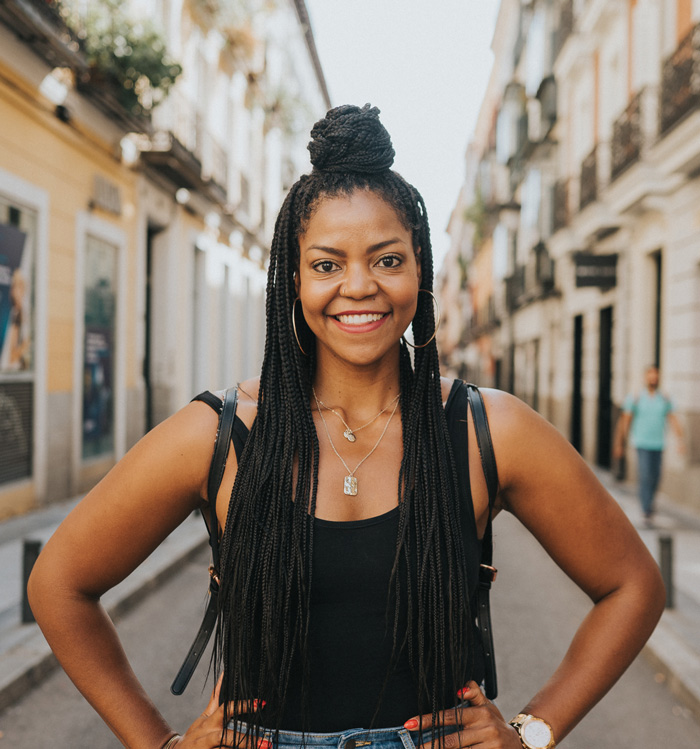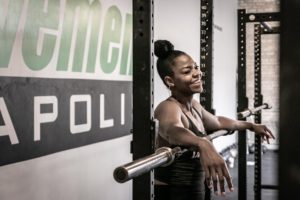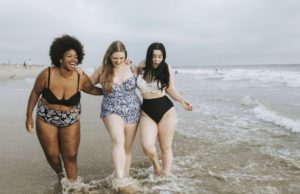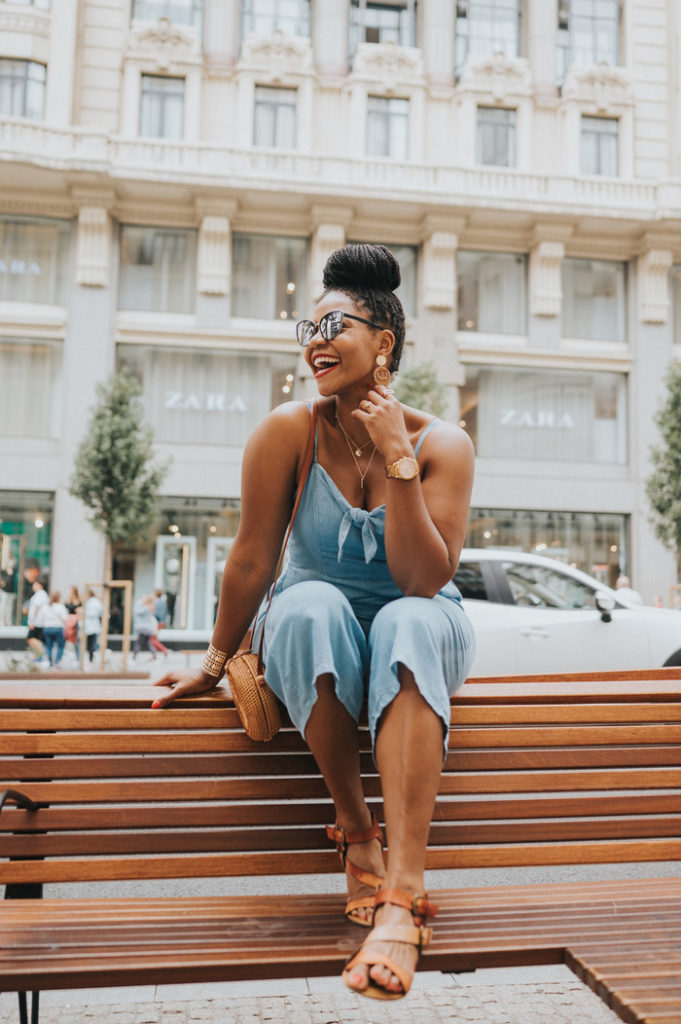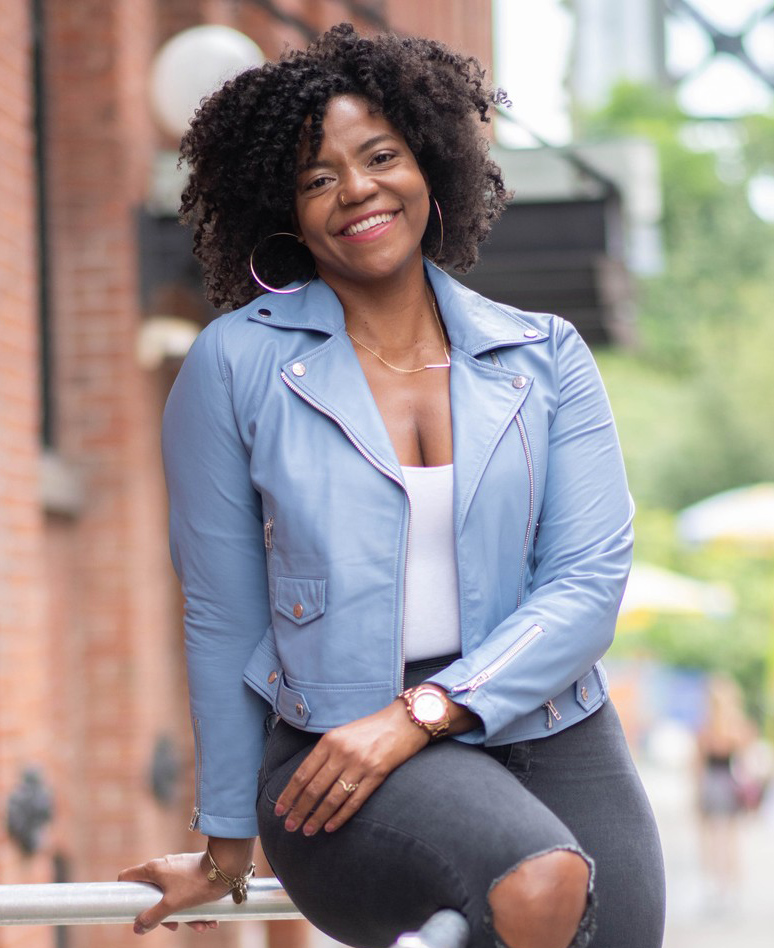When I first joined Instagram a few years ago, I would scroll through Instagram and find women that I thought had the ultimate goal body. I would follow every single person that embodied the look I thought I eventually wanted to have and then think about what I needed to change in order to look like them.
Most of the women I followed at the time had a few things in common: ripped 6 pack abs, super lean, voluptuous curves, and they always seemed to look amazing; “perfect” in my mind.
Originally, I thought this was motivating. It served as a reminder that I too could look like that if I just stayed dedicated, worked harder in the gym, followed a stricter diet, and got more committed.
But here’s the funny thing. The leaner I got, the stricter my diet and the more I shrunk my body, the less pleased I was. It was never enough. I grew increasingly more obsessed about my food choices to the point of wanting to avoid social situations that involved food because I didn’t want to eat “off plan.” My entire life started revolving around working out and eating. I wouldn’t even consider missing a workout. In fact, I would rearrange my entire day in order to never skip a workout. To learn the tools I used to eventually overcome these issues, you can download the #BodyPositiveBlueprint here for FREE.
I was a freaking mess. And I was also miserable.
It was never enough. No matter what I looked like or what I weighed, I always needed to “just lose 5 more pounds.” Don’t get me wrong. I wasn’t underweight, nor was I that small, however, I didn’t have a need to shrink my body further.
My obsession was unhealthy.
My family tried to convince that it was all in my head, but I brushed that off as them as just being supportive. Eventually, they are starting making jokes about my obsession and sending me memes like this.
And in case you are wondering, here is how I looked at the time:
All of this because I thought I would be happier when I looked like some girl on Instagram who I didn’t even know? How crazy was that?!?!
But it really wasn’t about the girl on Instagram. It was about my body image issues.
I would stand in front of the mirror and point out all my body’s “flaws.” I would examine the cellulite on my thighs. I would pull at the fat on my stomach thinking how gross I looked. I would turn around and point out that my butt looked flabby and not perky enough.
I could go on and on about my shortcomings.
I weighed myself every single morning, I took measurements of my body every single week, and I took progress pictures every Sunday morning. I would then spend the next 30 minutes scrutinizing the pictures to see if I could see any changes from the prior week.
I had turned my passion for health and fitness into an obsession about how my body looked. I had allowed myself to fall into the comparison trap. I had decided my value as person was based on how I looked, how thin I was (or wasn’t), and a desire to have the “perfect” body.
It was mentally exhausting.
So how did I get over this? To be honest, I don’t know the exact moment when I decided enough was enough. I just know that I got really freaking tired of the mental stress I was putting myself through.
One day I just quit. I stopped obsessing about food, I stopped taking progress pictures, I stopped weighing myself; I just needed a break.
And guess what happened? Not that much to be honest.
My body changed a little over the next couple of years. Here’s what I’m looking like these days.
And while I do have a little more body fat (and more jiggle), I’m totally okay with that because I’m in much better place mentally.
I never feel the need to avoid social situations because over time, I have learned that I’m always in control of my food choices, and I have the power to navigate any food situation. I have the power to make the best choices based on the situation and just move on with life; it’s not that big of a deal.
Trust me though, these mindset shifts didn’t happen overnight. There were definitely times where I felt myself reverting back to old habits or mindsets, and I still have to make a conscious effort to let not allow myself to fall back into negative thinking or the comparison trap.
But as I reminisced over this, I did think of a few things that helped me overcome my body image issues and get to a better place. I compiled a list of the top ten things I did to help me overcome my body image issues to help you (or someone you know) who may be struggling with their body image. It also includes a work book with some thought provoking exercises to help you disconnect the number on the scale from your value as a person. You can grab it here.
We have to stop attaching our self-worth to our body fat level or how “perfect” our bodies are or aren’t. We have to start realizing that the size of our jeans doesn’t have any connection with the value we hold as a person. We have to understand that having 6 pack abs won’t make us more valuable or even love ourselves more.
We have to start loving our bodies and ourselves at every stage instead of relegating to love our bodies when we reach a desired size or look.
Regardless of if you decide to follow any of these steps and work on your body image or not, the harsh reality is this: When you reach your desired weight, or get those 6 pack abs, or achieve the tiny waistline you have been aiming for, you won’t suddenly become a better person, or a smarter person, or a prettier person, or a funnier person, or a happier person.
You will in fact be the very same person, just a thinner version.
This was exactly what happened for me. Getting “thinner” or chasing aesthetic goals in search of the perfect body didn’t actually make me feel better about myself. In fact, the opposite happened because when we are looking for our body’s “flaws,” we will always be able to find more.
I’m not opposed to setting fat loss or aesthetic goals at all, but the reasoning behind why you have those goals is what matters. If your sole purpose for these goals is to fit society’s standards, to feel comfortable in your own skin, or to feel worthy to don a bikini at the beach, then to be honest, I think the goals are way off base.
Self-worth and body image are an inside job and you won’t ever feel “worthy” until you fix the issues internally. I don’t care how much weight you lose or how many aesthetic improvements you make to your body.
I’m here to tell you that you are already perfect; #FLAWLESS if you will.
In the words of Molly Galbraith of Girls Gone Strong, “I’m NOT embracing my flaws in 2017…A popular message among women is to encourage each other to “accept” or “embrace” their flaws. These messages are well-intentioned and seen as supportive and inspiring for many women. Me? I’m not embracing my flaws in 2017. Why? Because I’m not the one who decided they were flaws to begin with.” If you want to read a kick ass article from Girls Gone Strong filled with women declaring why their bodies are already flawless, you can check that out here.
In the age of social media, it’s really easy to get hung up on trying to look “perfect.” But here’s the truth, the way you look, your body fat percentage, or the size of your waistline, doesn’t determine your worth or value as a person. We are so much more than our looks. Basing our worth on our appearance will always leave us disappointed. We are so much more than that. Don’t allow yourself to lose sight of how amazing you truly are, and I also encourage you to refuse to accept society’s unrealistic standards of beauty.
Don’t forget to grab your copy of the Body Image Blueprint.
P.S.- If you want to receive exclusive emails about nutrition, mindset, and fitness, please sign up for my newsletter here –>https://chrissyking.com/newsletter/






